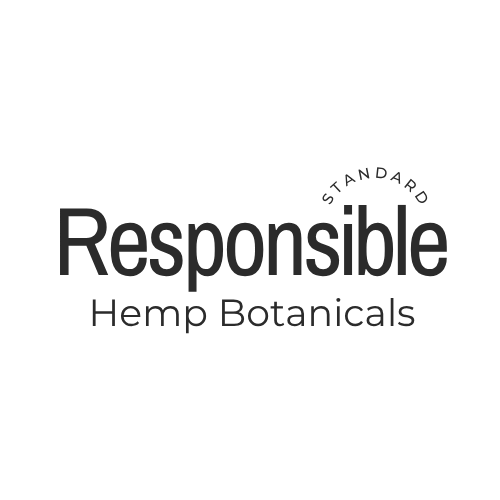🌿 The Risk of Skipping Certification in Hemp Wellness
In the fast-moving hemp wellness space, innovation happens daily. From cannabinoid-infused supplements to functional beverages and skincare, brands are racing to capture consumer attention. But in this competitive environment, one critical step is often overlooked: independent certification of ingredients and products.
At first glance, certification might feel like a burden—an added layer of paperwork, cost, or compliance. But the reality is clear: skipping certification comes with far greater risks. From product recalls to reputational damage, the costs of ignoring third-party verification can threaten a brand’s future.
This article explores the real-world risks of avoiding certification, provides key examples of what can go wrong, and explains how the Responsible Hemp Botanicals (RHB) Standard helps brands safeguard their products, their reputations, and their growth.
The Growing Pressure on Hemp Brands
The hemp and cannabinoid industry is no longer a fringe market. It’s part of the mainstream wellness economy, where consumers, retailers, and regulators are paying close attention.
Consumers want transparency, clean labels, and proof of safety.
Retailers are cautious, seeking products that won’t expose them to liability or damage their brand reputation.
Regulators are steadily increasing scrutiny, with enforcement actions against mislabeled or unsafe products.
In this environment, uncertified products stand out—and not in a good way.
Risks of Skipping Certification
Here are the most common (and costly) consequences hemp brands face when they choose not to certify:
1. Product Recalls
Without independent verification, products are more likely to contain errors—like inaccurate cannabinoid potency or undisclosed contaminants. If regulators or retailers discover these issues, the result is often a recall.
Real-World Example: In recent years, several CBD companies faced recalls after FDA testing revealed discrepancies between labels and actual cannabinoid content. Some products contained significantly less CBD than advertised, while others exceeded legal THC limits.
Recalls aren’t just expensive—they erode trust and create long-term reputational damage.
2. Retailer Rejection
Large retailers and distributors increasingly demand proof of safety and compliance. Without certification, brands may find their products excluded from shelves and e-commerce platforms.
Scenario: A hemp beverage company secures a meeting with a national grocery chain. The buyer loves the product but requests documentation of third-party verification for ingredients, labe accuracy, and contaminant testing. Without certification, the deal stalls—and the brand loses a major growth opportunity.
3. Regulatory Action
In the U.S. and abroad, regulators are stepping up enforcement against misleading or unsafe hemp products. Skipping certification increases the likelihood of receiving warning letters, fines, or worse.
Example: The FDA has issued dozens of warning letters to companies making unsubstantiated health claims or selling products with misbranded labels. Certification helps prevent these issues by ensuring testing compliance before products go to market.
4. Consumer Distrust
In a crowded market, consumers rely on trust signals to guide purchases. A brand without certification risks being perceived as less credible—especially if competitors proudly display a recognized seal.
Even worse, if consumers discover mislabeled or unsafe products, the brand may lose loyalty permanently. In wellness, trust once broken is difficult to regain.
5. Investor Hesitation
Investors want assurance that the companies they back are prepared for growth and compliance. Skipping certification raises red flags about risk management and scalability. A certification-first approach signals maturity and readiness for expansion.
How Certification Prevents These Risks
Certification isn’t just about avoiding problems—it’s about creating advantages. The Responsible Hemp Botanicals (RHB) Standard was built specifically to help hemp brands operate with integrity, consistency, and consumer trust.
Here’s how certification through RHB helps brands avoid the pitfalls:
✅ Contaminant Screening
RHB requires third-party lab testing for pesticides, heavy metals, residual solvents, and microbiological hazards.
This ensures that unsafe products never reach consumers, preventing recalls and liability.
✅ Label Audits
Certification reviews packaging and label potency claims to ensure accuracy and compliance.
This reduces the risk of misleading labels, regulatory fines, or retailer rejections.
✅ Ingredient Verification
RHB tracks hemp and botanical ingredients from source to shelf.
Verified supply chains protect against adulteration and strengthen consumer confidence.
✅ Independent Oversight
Certification is administered by a third-party certifying body, ensuring impartiality.
This reinforces credibility with consumers, retailers, and regulators alike.
Certification as a Strategic Asset
While some view certification as a compliance checkbox, forward-thinking hemp brands see it as a strategic asset.
Market Differentiation: In a crowded market, certification sets brands apart as credible and responsible.
Retail Expansion: Certified products are more attractive to major retailers and distributors.
Consumer Loyalty: Shoppers are more likely to trust and repurchase from certified brands.
Investor Confidence: Certification reassures investors that the brand is prepared for long-term growth.
The lesson is clear: the cost of certification is far less than the cost of skipping it.
Future-Proofing Hemp Brands
The hemp industry is still evolving, and regulations are only going to get stricter. Brands that adopt certification today will be better prepared for tomorrow.
The Responsible Hemp Botanicals Standard provides a roadmap for building resilience:
Protecting consumers from unsafe products.
Helping brands avoid recalls, fines, and retailer rejections.
Building a foundation of trust that lasts.
Certification doesn’t slow growth—it accelerates it by giving brands the credibility and compliance they need to scale with confidence.
In hemp wellness, the riskiest move a brand can make is skipping certification. The short-term savings pale in comparison to the long-term costs of recalls, reputational damage, and lost opportunities.
The RHB Standard offers a clear path forward. By prioritizing independent verification, brands can protect their reputations, win over retailers, and build lasting trust with consumers.
Because at the end of the day, it’s not just about selling products—it’s about building a responsible, sustainable, and trusted hemp industry.

